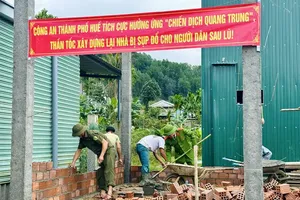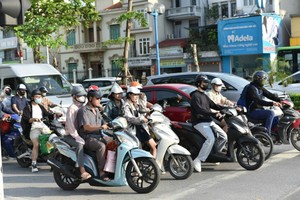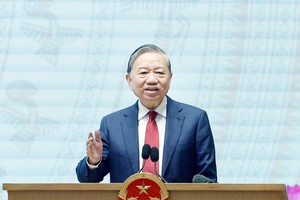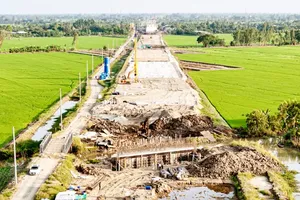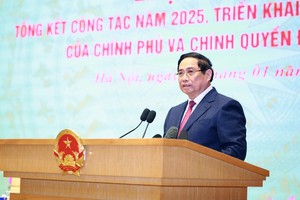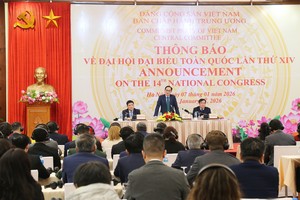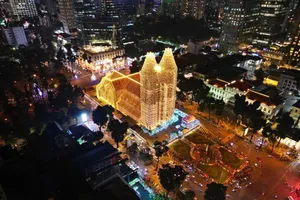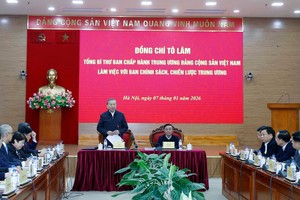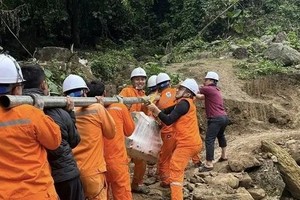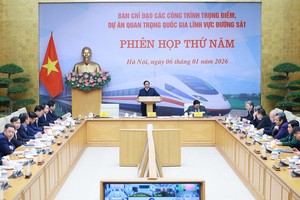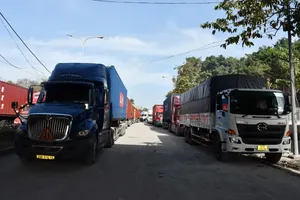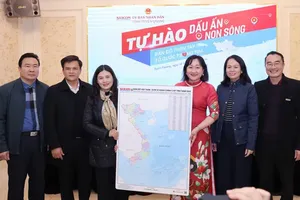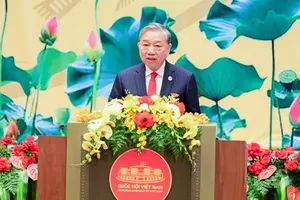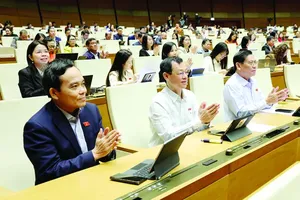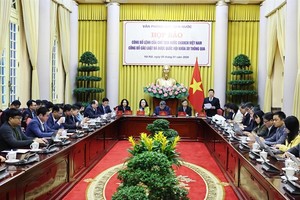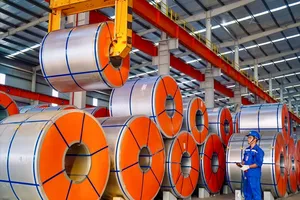 |
Participants at the Vietnam - Asia Smart City Summit 2023 |
The above-mentioned problems were heard at the opening of the Vietnam - Asia Smart City Summit 2023 (Vietnam - Asia Smart City Summit 2023) in Hanoi this morning.
The event with the theme ‘Data Mining - Building a Smart City for Sustainable Development’ was organized by the Hanoi People's Committee in coordination with the Vietnam Software and IT Services Association (VINASA).
The Vietnam - Asia Smart City Summit 2023 with an opening session and 9 in-depth thematic sessions saw the participation of more than 80 speakers, experts, and more than 1,000 delegates who are leaders and managers from 11 economies, representatives of ministries, agencies and 18 provinces and cities across the country and representatives from technology businesses, application businesses.
The event also has nearly 30 exhibition booths introducing excellent technology services and solutions serving smart urban development in Vietnam and the region.
After 5 years of implementing the Prime Minister’s Decision No. 950/QD-TTg on sustainable smart urban development in Vietnam for the period 2018-2025 and orientation to 2030, out of 63 provinces and cities across Vietnam, 48 are implementing a smart urban development project and more than 40 localities have deployed intelligent operating centers (IOCs) at the provincial level and nearly 100 IOCs at the district level.
Current urban areas are deploying the development of IOC systems and smart urban facilities and smart services, focusing mainly on the fields of transportation including monitoring traffic order and safety, and smart healthcare, smart education, development of warning applications.
Mr. Truong Gia Binh, Chairman of VINASA Founding Council, said that industrial enterprises also try their best to accompany provinces and cities in orientation, planning and building Smart Cities. Enterprises such as Viettel, VNPT, and FPT, in addition to cooperating and deploying IOC at all levels for many localities, have actively made efforts to advise cities on applying intelligence and artificial intelligence (AI) into planning and urban development.
Other technology businesses have been creating and bringing the most advanced and effective solutions such as AI, Internet of Things (IoT), and 3D digital maps to help smarten the management and administration of departments, agencies, urban areas, industrial parks and are moving towards management problems and digital data exploitation.
However, according to Mr. Truong Gia Binh, building smart cities in Vietnam still faces many obstacles. The biggest challenge is that the legal framework which is unclear and not favorable for public-private cooperation, especially related to investment, bidding, and hiring of IT services. In addition, urban areas have not focused on smart planning and the smartization of basic and essential infrastructure.
The government has identified 2023 as the Year of National Digital Data; therefore, administrations in different levels have taken heed of creating a data collection, connection, and data model to ensure information security, data exploitation to serve strategy development, operations, and decision-making in urban management.
At the conference, representatives of localities and technology enterprises shared experiences and existing smart urban development models. At the same time, they have been introducing many smart platforms and solutions such as cloud computing, 5G solutions, IoT products, virtual assistants, AI in health, and traffic.
Based on the existing infrastructure, as well as the characteristics of each urban area in Vietnam, experts believe that there needs to be a roadmap for intellectualization and sustainable, highly resilient urban development associated with management and administration with data infrastructure construction for effective communication and exploitation.
According to Deputy Minister of Information and Communications Nguyen Huy Dung, smart urban development is about implementing digital transformation within the scope and scale of the urban area but focusing on solving major urban problems, including traffic, environment, energy, waste treatment, security and order. Nevertheless, to achieve these contents methodically, smart factors must be identified, calculated and included right from the beginning of the urban and city planning.
Smart urban development is building a modern and effective method of urban development and operation based on the application of innovative and creative technologies, the applications of specialized agencies are closely related to each other. Localities must ensure close connection with the local digital transformation process, without separation or duplication, all aiming to be people-centered.
In smart cities, people can enjoy services and participate in activities in the form of social contributions. Relevant units need to consider urban information infrastructure, digital infrastructure and especially data infrastructure as an essential urban infrastructure, a foundation for intellectualizing technical and infrastructure of socio-economy, Deputy Minister Nguyen Huy Dung emphasized.
